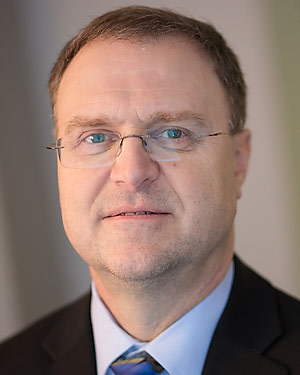
Kampala— Professor David Peters, Dean of the Faculty of Health at York University, Canada, has hailed Makerere University School of Public Health (MakSPH) as a global leader and a cornerstone of Uganda's public health system. He emphasized the school's vital role during the launch of its new state-of-the-art auditorium on March 15, 2024, part of its ambitious expansion plans to bolster Public Health capacity, training, research, and service across Africa.
Drawing from extensive experience in global health systems, Professor Peters emphasized the critical role of Makerere University in driving forward public health initiatives in the region.
The ambitious MakSPH new home building construction broke ground on 28th February, 2020. The project that seeks to address the increasing demand for public health education and research, with an estimated cost of $10 million USD.
While making a case for the building, the Netherlands Ambassador to Uganda then, Henk Jan Bakker, announced the Dutch contribution to a tune of $420,000 through the Hague based Dutch organisation for internationalisation in education Nuffic and through the SET-SRHR project at Makerere University. This contribution was channeled to towards the construction of a state-of-the-art Auditorium, which is part of building design. Infrastructure forms the foundation of a healthy community and indeed as noted by Ambassador Henk, “Public Health is not only Uganda’s concern but also a global epidemic thus worth investing in.”
“I want to say how grateful I am to have been able to work with colleagues at Makerere University for now over two decades,” said Professor Peters.

Adding that; “The School of Public Health is responsible for educating and training critically needed public health workers for conducting critical science-based research that really addresses the origins of public health problems as well as for the prevention and intervention for diseases and disabilities and because it strengthens the practice of public health through knowledge translation.”
Professor Peters highlights the School of Public Health's critical role in addressing historical and current public health challenges, including population growth, urbanization, inequity, justice, commercial influence, climate effects, and technological changes.
“And this is huge cost to the population, whether it be a maternal child, chronic diseases or aging, but also on epidemics and the costs, literally the catastrophic costs of health spending,” he said.
For Prof. Peter, while ideas on medicine and disease have really spread across countries and regions for millennia, efforts at public health and global level are really relatively recent from the last few centuries.
In the 19th century, historical concerns revolved around epidemics, famine, and conflict, closely linked to trade and environmental disruptions impacting industry and agriculture. This prompted nations to collaborate in safeguarding trade and preventing disease spread, laying the groundwork for international health regulations and the establishment of the World Health Organization (WHO).
Global public health education emerged from these efforts, rooted in scientific advancements like the germ theory and influenced by colonialism. Global health initiatives aimed to address health issues in other populations, with the Rockefeller Foundation playing a significant role in supporting and establishing schools of public health. The first, Johns Hopkins, founded in 1916, paved the way for numerous others worldwide, totaling around 35 new schools of public health, alongside several medical schools.
In modern global health, scientific advancements applied in resource-limited settings have saved countless lives. However, Professor Peters contends that this focus on biomedicine and technology, while successful in tackling specific health issues, often neglects broader local health system challenges.

He further notes that vertical and horizontal approaches, though effective at times, fail to address the comprehensive needs of communities and systems. Additionally, the dominance of Western institutions in global health perpetuates a crisis-driven mentality, prioritizing quick wins over sustainable, community-centered strategies.
This approach, exemplified during crises like the Ebola outbreak in West Africa, sidelines long-term planning and neglects social determinants of health.
Dr. Peters, also the former senior public health specialist with the World Bank argues that while science drives progress, it comes at the expense of sustainability, coherence, and holistic health approaches, favoring curative care over prevention, a perception he believes needs to change.
Looking ahead in global public health education, Professor Peters acknowledges Makerere University's leadership in this field and its ongoing commitment. He highlights the university's efforts to tailor institutional design and curriculum to local needs, particularly evident in the Master of Public Health program at Makerere School of Public Health, including distance learning options.
Emphasizing the need for innovative teaching methods, such as active learning and interdisciplinary approaches, Professor Peters stresses the importance of practical experience and IT integration.
Renowned for his collaborative efforts in advancing health policy and systems research, implementation science, and enhancing institutional capacity in health systems, Professor Peters advocates for professionalism grounded in competencies. He champions collaboration among health and education stakeholders, policymakers, communities, professional organizations, and academia to drive the evolution of global public health education.
“You need to be socially relevant, coherent and accountable. This does mean that physical infrastructure is needed. Our twinning operation between Makerere and Uganda. We need the buildings for teaching, community convening and group work, but also for research wet labs, specimen storage, computing, for use of big data and for the IT infrastructure,” said Prof. Peters.
Learning between collaboration across institutions and linking global to local is really critical. He contends that Makerere School of Public Health is an essential to the public health system and a leader in this as well.
Taking inspiration from a program at the College of Health Sciences, funded by the Bill and Melinda Gates Foundation, which aimed to enhance all health schools at Johns Hopkins and Makerere University, Professor Peters emphasizes the broader scope of the initiative beyond mere technological advancements.
Dubbed the "grander challenge," the project focused on institution-building, innovation, and human resource development for sustainable healthcare delivery. Makerere University seeks to be a transformative institution, fostering academic excellence and innovation while driving positive health outcomes in Uganda and the broader East Africa region.
“See the Makerere School of Public Health as transformational and being able to develop and generate knowledge, develop capabilities at individual levels as well as the leadership and organizational levels to model best practices and to support organizations and to develop partnerships to stimulate change,” he says.
He notes that there is a strong investment case for infrastructure at Makerere University. “It provides education training, it conducts research, it strengthens practice. If you see it as an essential part of infrastructure, here's something that colleagues in North America put together around, this is around the National Academy of Sciences saying that ‘investment in schools of public health should be seen as analogous to government support for public goods like national defense and transportation infrastructure. It is that important.’”
According to Professor Peters, a global review found similar things how what they do in terms of education and research but also towards sustainable development goals and what it does globally. And that you need funding, human resources, agency, collaborations, and infrastructure in being able to do that.
“We need your time, your talent and your treasure to be able to contribute to Makerere School of Public Health. I want to thank you and to finally say that Makerere School of Public Health needs you, but we all need Makerere School of Public Health,” Professor David Peters.
In 2021, the USAID ASHA Program awarded $1.1 million to create an augmented reality solution for Makerere University's new School of Public Health. Partnering with Johns Hopkins University under the leadership of Prof. David Peters, this funding aims to launch the Makerere University Centre of Excellence for Global Health.
Since 2000, Johns Hopkins has engaged in 48 collaborative research and training projects valued at over $6 million, spanning various fields such as doctoral training, medical education, laboratory training, and health systems development, including projects like the Asha Grant.
Caitlin Kennedy, a Professor of International Health, Social, and Behavioral Interventions at Johns Hopkins, expressed excitement about the university's involvement in the building collaboration and eagerly anticipates exploring the new space and further nurturing partnerships cultivated over the years.
“I would like to send a sincere thanks to the Asha Grant and USAID for the amazing financial support. I hope others will see projects like this, and be inspired to provide more funding for public health infrastructure,” said Prof. Caitlin.
Caitlin Kennedy extends gratitude to everyone involved in bringing the building to shape, from the visionaries to the diligent planners and builders. She also thanks the faculty, staff, and students who will transform it into a vibrant learning environment.
“We at Johns Hopkins are really looking forward to continuing to do great public health collaborations with you in that space for many years to come. Thank you so much. Everyone and congratulations enjoy the space.”

Funds raised so far
Currently, we've raised a total of $4,804,314, but we still face a deficit of $5,195,686 for the construction. We're grateful for contributions from various sources: MakSPH Staff Community ($46,043), MakSPH Departments ($144,972), Private Institutions/Companies ($52,528), Other Individuals ($131,949), and a generous donation of $675,000 from Makerere University. Additionally, MakSPH has committed $2,133,822 from internally generated funds, while the Rockefeller Foundation contributed $100,000 towards furnishing the auditorium. Your support is crucial in making a meaningful impact and driving transformation. Join us on this journey by contributing through https://sph.mak.ac.ug/givedonate.
By Davidson Ndyabahika

